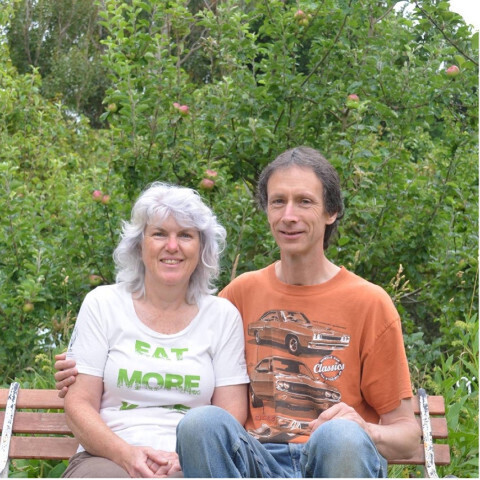A five-acre plot in Kairanga, close to Palmerston North, is the site of a thriving horticultural garden, which produces organic and biodynamic raspberries, black currants, boysenberries, and other fresh produce.
The food is grown naturally and organically, is GE free, Demeter-certified (the greatest accessible standard), and is grown without using any synthetic fertilizers or pesticides, meaning customers can treat themselves to delicious, fresh fruit without any strings (or chemicals) attached.
Joanne and Greg Turner bought the property in 1998 and turned it into Woodhouse Farm Organics.
It was once a portion of a dairy farm. Greg’s family have been in the region from 1905, and he works in Palmerston North. Both were raised on farms and are very interested in horticulture and farming. They began to be intrigued with biodynamic and organic growing in the 90s.
Booming local demand
The duo sell the majority of their crop locally in the lower North Island to organic retail shops.
Big quantities of their frozen berries are sold to companies to be used in products, and if there aren't any berries, small amounts of food located in their garden or orchard are sold at two nearby markets: the Summerhill market and the Hokowhitu market.
The Turners choose not to export because there’s more demand for their organic and biodynamic produce than supply.
Joanne once worked as the secretary to the mayor of Palmerston North, but gave up in 2001 to produce raspberries instead.
After a few years, she completed a Diploma in Horticulture at Massey University, a decision she says was “one of the best things I could do for our business”. Using her knowledge of horticulture, she was able to solve the issues that organic farming presents.
Joanne is now the part-time secretary of the charity Biodynamics New Zealand. The job involves the role of Demeter Certification Manager. Biodynamics is a systems approach, where the garden is viewed as a living whole and each activity affects everything else.
Challenges
Establishing the business wasn’t all easy for them though. The Turners had a difficult time breaking into the industry. Joanne says that although they were talking to other berry growers, it was hard to get good advice and support.
The logistics of getting to the market with great, fresh raspberries and boysenberries is also challenging, considering that their shelf life is three days and there’s only a small amount of the delicate berries.
Climate change has also affected the Turners. Joanne says there are worse rain events occurring, and it’s becoming increasingly difficult to grow raspberries, as they favour free-draining soil.
Inspiration
A big inspiration for the Turners is the feedback they receive about their products.
Joanne says customers have said Woodhouse’s berries were the best they have ever tried.
The Turners’ are driven by a desire for more people to be eating healthy, delicious food that helps their immune system.
Joanne says it’s essential for people to know about eating healthy food and for it to be offered to them, now more than ever.
Joanne says there have been calls for many years for country-of-origin labelling and the NZ Grown label means Woodhouse Farm Organics didn’t have to wait for the government to legislate the country of origin labelling.
Woodhouse Farm Organics: it's only natural
October 4, 2021


